Victim-centered responses to trafficking crimes in Tajikistan
Dushanbe, 01.06.2016 (NIAT “Khovar”). – Employees of Tajikistan embassies and consulates abroad participate at the training on combating human trafficking started today, on 01 June 2016, in Dushanbe.
According to the IOM office in Tajikistan, the staff of the Tajik MFA Headquarter, Embassies and Consulates of the Republic of Tajikistan, participating at the training, will be familiarized with the role of the National Referral Mechanism in identification and referral of victims of human trafficking to relevant government and civil society organizations for assistance.
The training is organized by the International Organization for Migration (IOM) in partnership with the Ministry of Foreign Affairs of the Republic of Tajikistan and the U.S. Department of State’s Office to Monitor and Combat Trafficking in Persons (J/TIP).
Human trafficking is a modern-day form of slavery and involves trade of a person for labor or sexual exploitation or financial gain. As human trafficking mostly is a trans-border crime and many victims are in desperate needs in foreign countries, embassies, consulates and migration services abroad in destination countries play an especially vital role in rescuing and saving lives and fates as a first point of contact between the home country and victims. Training of officials of these structures will contribute to effective combating of trafficking in persons in Tajikistan.
Participants will discuss the situation of human trafficking in Tajikistan, including the new national legislation and international instruments, as well as will be familiarized with the experience of international cooperation of the Republic of Tajikistan in the field of combating human trafficking. Local experts will provide clarification in determining the role of diplomatic and consular personnel in combating human trafficking and providing assistance to victims of trafficking, and will introduce participants to new trends in protection, identification and repatriation of victims of trafficking. Particular attention will be paid to the referral mechanism of victims of trafficking, as well as psychological and ethical principles of communication with victims of human trafficking.
In addition, participants will learn about the best practices of cooperation between government agencies and civil society in Tajikistan and about the role of IOM and NGOs in provision of protection and assistance to victims of trafficking, including support for shelters and hotlines.











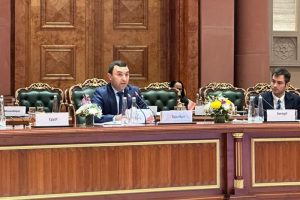 Tajikistan Promotes Digital Transformation Agenda at AI Impact Summit
Tajikistan Promotes Digital Transformation Agenda at AI Impact Summit Tajikistan Expands AI Cooperation with Google DeepMind
Tajikistan Expands AI Cooperation with Google DeepMind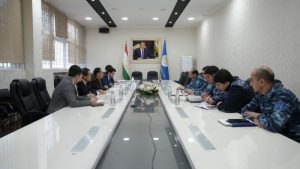 Tajik Customs, Japanese Firm Sign Deal on Cargo Scanning Upgrade Project
Tajik Customs, Japanese Firm Sign Deal on Cargo Scanning Upgrade Project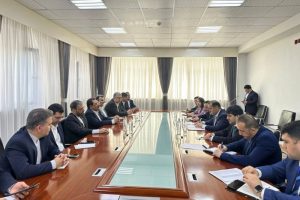 Tajikistan, Iran Discuss Boosting Direct Investment Cooperation
Tajikistan, Iran Discuss Boosting Direct Investment Cooperation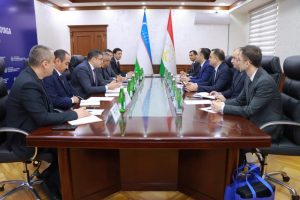 Tajik and Uzbek Anti-Corruption Agencies Discuss Expanding Cooperation
Tajik and Uzbek Anti-Corruption Agencies Discuss Expanding Cooperation Starlink Satellite Internet Launches in Tajikistan
Starlink Satellite Internet Launches in Tajikistan Austrian Company Andritz Hydro Seeks to Expand Cooperation with Tajikistan
Austrian Company Andritz Hydro Seeks to Expand Cooperation with Tajikistan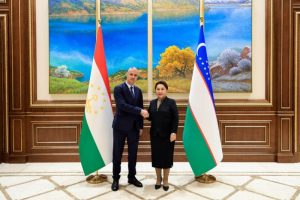 Ambassador of Tajikistan Meets with Chairperson of the Senate of Uzbekistan
Ambassador of Tajikistan Meets with Chairperson of the Senate of Uzbekistan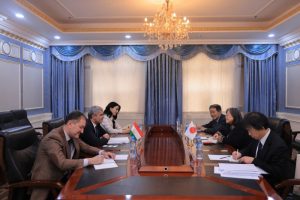 Tajikistan and Japan Discuss Cooperation within Regional and International Organizations
Tajikistan and Japan Discuss Cooperation within Regional and International Organizations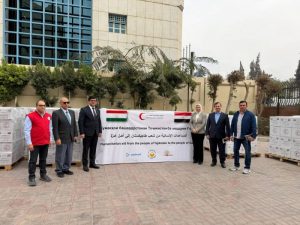 Tajikistan’s Humanitarian Aid to the People of Gaza
Tajikistan’s Humanitarian Aid to the People of Gaza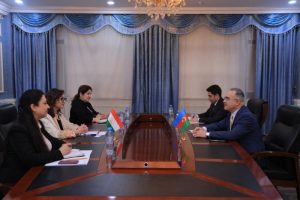 Bilateral Cooperation Between Tajikistan and Azerbaijan Discussed in Dushanbe
Bilateral Cooperation Between Tajikistan and Azerbaijan Discussed in Dushanbe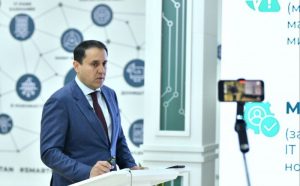 Tajikistan Establishes Data Protection Center to Strengthen Cybersecurity
Tajikistan Establishes Data Protection Center to Strengthen Cybersecurity














